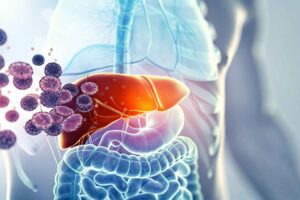Giorgia Guglielmi
Giorgia Guglielmi is a freelance science writer based in Basel, Switzerland. Specializing in life sciences, medicine, and the relationship between science and society, she has published numerous articles in outlets including Nature, Science, and Scientific American. She holds a PhD in biology from the European Molecular Biology Laboratory and a Master’s in Science Writing from the Massachusetts Institute of Technology. She has received recognition for her work, including the John Kendrew Award in 2020 and an ERC-funded FRONTIERS Media Fellowship in 2025. She has also led lectures and workshops on science communication at institutions such as Harvard University and the University of Zurich.
Gastroenterology
Fiber can influence how well bacteria from a fecal microbiota transplant successfully settle and grow in a person’s gut.
Gastroenterology
Region-specific microbial transplants may be safer and more effective than standard fecal microbiota transplants.
Oncology
Plant compounds and gut microbiota activity influence how cancer drugs work and should be considered in treatment.
Dentistry
Tracking the oral microbiota can help identify ECC risk early and inform prevention strategies in children, even before visible signs of decay.
Endocrinology, Nutrition
AceCel is a promising way to help manage obesity by targeting gut bacteria and metabolism together.
Oncology, Gastroenterology
Nanoparticle-based approaches are a promising strategy for treating colorectal cancer.
Gastroenterology
Fungal metabolites such as FF-C1 may offer a new therapeutic approach for treating MAFLD and related conditions.
Dermatology
Certain barriers on the skin prevent easy colonization of new strains and specific life stages, such as adolescence, may be crucial for successful probiotic interventions.
Gastroenterology, Scientific research
Even small differences between strains of gut bacteria—often within the same species—can sway how these microbes interact with the human body and influence disease outcomes.
Oncology
Genetic factors can influence tumor-associated microbes, offering insights into colorectal cancer progression and potential therapeutic targets.











